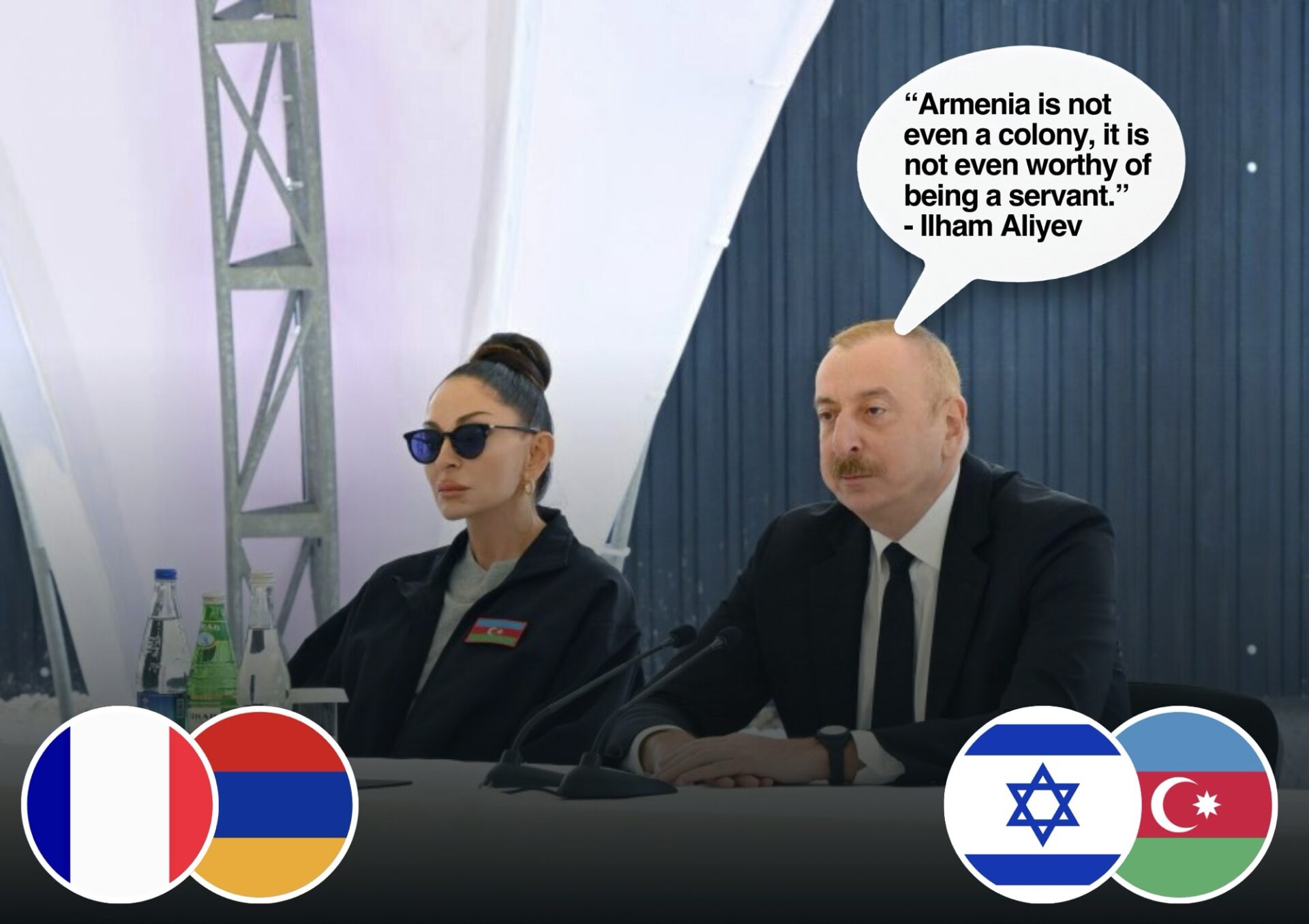Azerbaijan’s President Ilham Aliyev has threatened Armenia against arming itself, citing bogus concerns over regional security.
Aliyev said, “Our policy is based on international law and justice. If we see revengeful forces raising their head again in Armenia, if France gives deadly weapons to Armenia, and if we see that these weapons reach a critical level, then let no one have any hard feelings,’ while in occupied Shushi, Artsakh.
Aliyev emphasized the capabilities of the Azerbaijani military and expressed a firm stance against foreign interference, stating, “In any case, everyone knows what we are capable of, what our Army is capable of, and how strong our determination is. No one can stand in front of us, dictate anything to us, or interfere in our internal affairs. We will do what we think is right.”
The President also addressed the post-2020 Artsakh War border negotiations, suggesting unilateral actions if agreements aren’t met. “After the Second Karabakh War, we told Armenia that let’s define the border fairly. If you don’t want that, then we will say where we want there to be a border. What will he do? Who will he call? Let him call 100 times, but what will the result be?” he questioned, adding, “Let him call 100 times, but what will the result be? I want to say again to both the people of Azerbaijan and those interested in this region that no step should be taken here without our approval. I am sure they will hear my words. They know that I do what I say.”
Meanwhile, Azerbaijan continues to bolster its military arsenal with significant acquisitions from abroad. Azerbaijan has imported billions of dollars’ worth of advanced weapons from Israel, raising questions about the balance of power and intentions in the region, which are nothing short of genocidal. This continues despite Aliyev’s calls for Armenia to remain lightly armed, highlighting a stark contrast in strategies between the two nations.
Aliyev’s firm stance and Azerbaijan’s military enhancements continue to fuel the complexities and tensions in the South Caucasus, where each action and statement significantly impacts regional stability and peace prospects.


